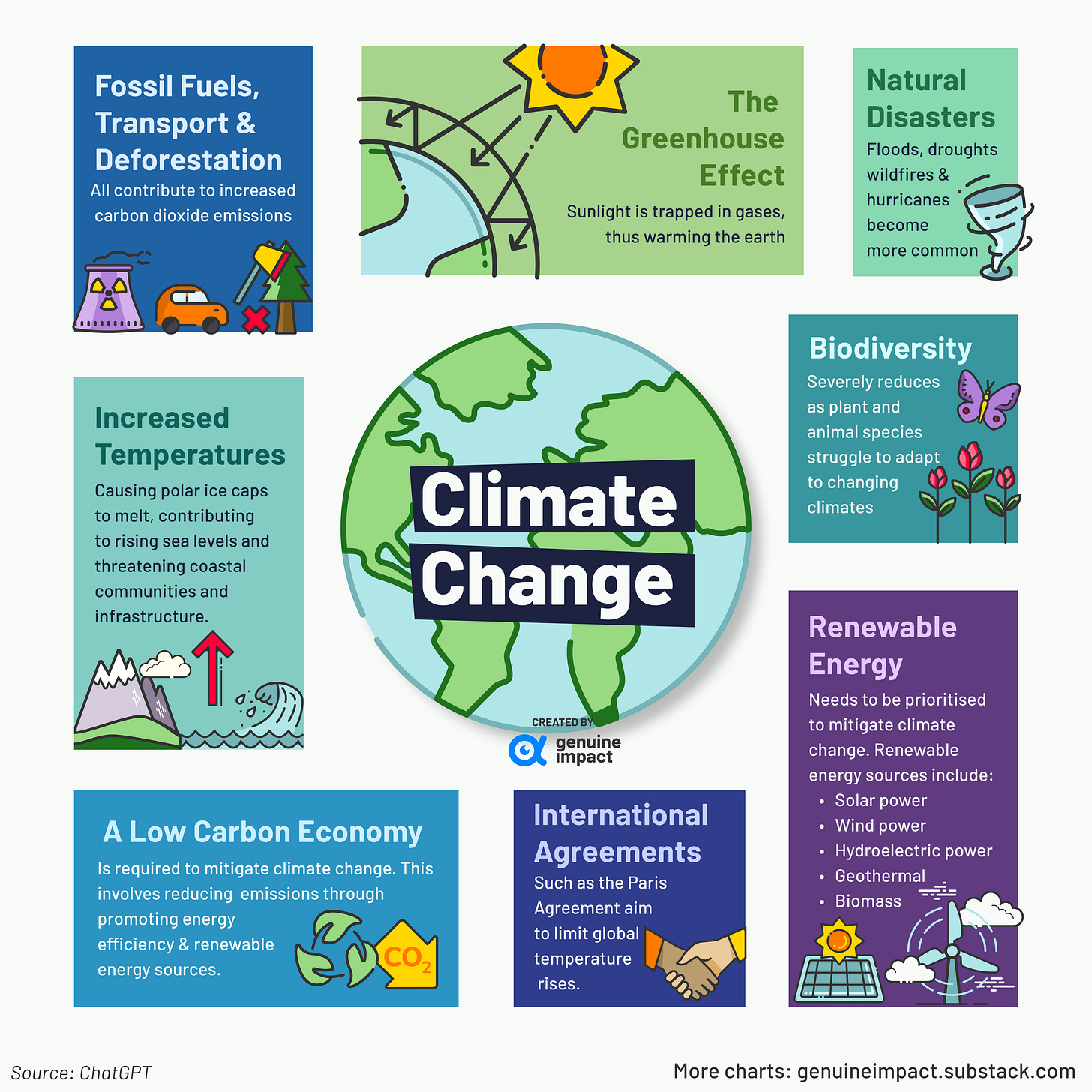Today we’re clearing the air on how climate change affects businesses (and vice versa). The transition towards a low-carbon economy presents challenges for some businesses, and opportunities for others.
Climate change: How did we get here?
Climate change is a pressing issue that affects not only the environment but also the economy. As the global temperature continues to rise, extreme weather events become more frequent, and natural disasters become more severe, bringing with them financial implications.
According to the International Monetary Fund, global temperatures have been increasing year over year since 1986.
But what is causing global temperatures to increase? Let’s take a deeper look at the underlying causes of climate change and its implications.
Increased CO2 emissions from energy and transport sectors, as well as a loss of CO2 emissions due to deforestation, are major contributors to the climate change crisis.
As greenhouse gases continue to accumulate in the atmosphere, it is becoming increasingly important to mitigate climate change. Multiple countries are navigating towards a green economy. This transition involves prioritising sustainability, tackling climate change and resource depletion, and creating new opportunities for economic growth.
Get smarter in 5 minutes with Morning Brew*
There's a reason over 4 million people start their day with Morning Brew - the daily email that delivers the latest news from Wall Street to Silicon Valley. Business news doesn't have to be boring...make your mornings more enjoyable, for free.
*This is sponsored advertising content.
How climate change affects businesses
In addition to global efforts, many businesses are choosing to adopt greener practices. This may involve tree-planting schemes to offset company emissions, or even the adoption of a zero-carbon strategy for the business as a whole. One such example is luxury car manufacturer Bentley Motors, which has committed to becoming completely carbon neutral by 2030 and plans to stop selling petrol cars in 2026.
On the other hand, the transition to a low-carbon economy poses financial risk for high-emitting companies. It’s no surprise that energy companies such as Exonn Mobil and Berkshire Hathaway are big culprits in the CO2 emissions department, but who else has made the leaderboard of shame?
(For context, a typical passenger vehicle emits about 4.6 metric tons of carbon dioxide per year, according to the United States Environmental Protection Agency.)
The adoption of renewable energy sources means that these companies, which rely largely on fossil fuels to generate electricity, may become stranded assets in the future, posing risk for investors and lenders.
Despite this, energy companies are still raking in the big bucks, with Exonn Mobil boasting $55.7 billion in profit in 2022, a 142% increase on its 2021 profits.
Climate change also presents opportunities for businesses and investors who are willing to capitalise on green transition through creating new sustainable markets and revenue streams. Sustainable business appeal in particular to Gen Z, which has been dubbed the ‘sustainability generation’ by Forbes. Green policies also draw more interest from ‘ethical investors’ who wish to invest in sustainable companies.
Overall, the long-term macroeconomic implication of climate change is a pressing issue, and will require careful consideration from businesses to ensure they can survive the shift to a green economy.
We’re interested to hear your thoughts on climate change, so please leave us a comment below! You can also Tweet us.
Created by Shivani
New to investing? Check out our handy video guides.
This newsletter started free, and we aim to keep it free for as long as we can. However, any support is always much appreciated - feel free to buy us a coffee using the link below <3
Want to advertise your brand on our newsletter? Click below and we’ll get back to you ASAP!









